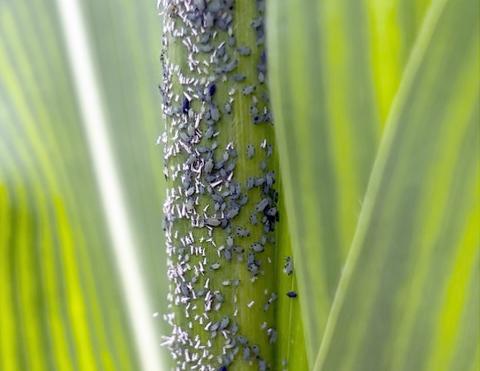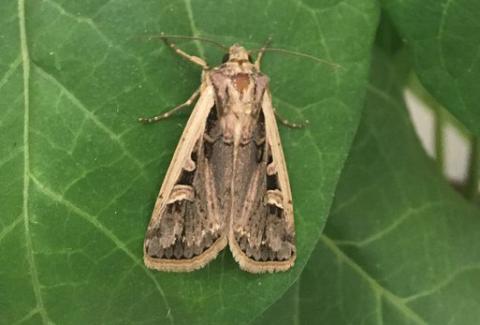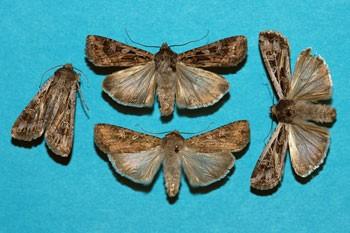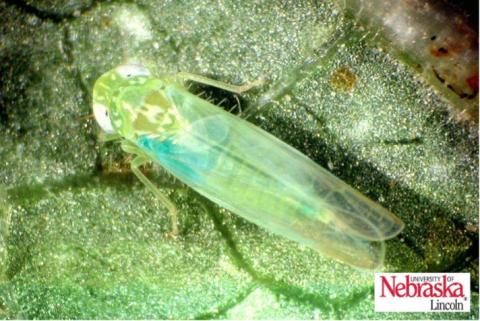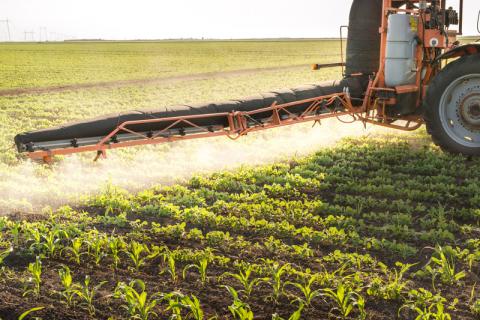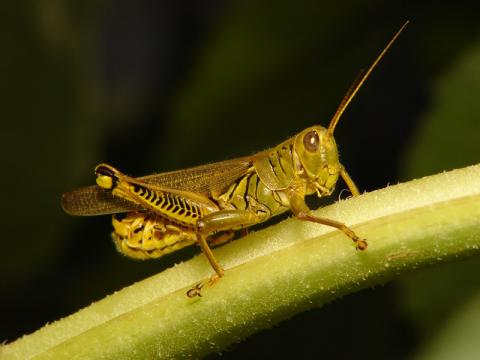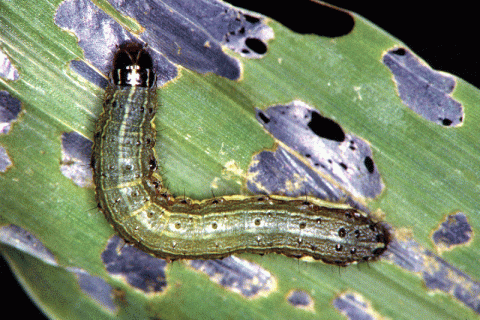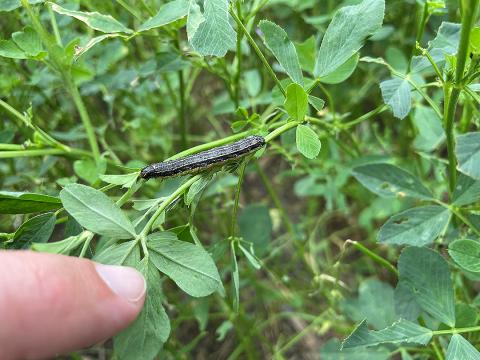Watch for Aphids in Corn
July 27, 2023
Aphids cause the greatest amount of injury while they are feeding within the whorl prior to tassel emergence. Treatment may be needed if pollination is no more than half complete and more than half of the corn tassels are covered with aphids.
Degree-days for Prediction of Western Bean Cutworm Flight
June 29, 2023
Measuring the amount of heat between an upper and lower threshold to which an insect has been exposed, degree-days models can provide a high level of precision in predicting western bean cutworm peak flight.
Spring Miller Moth Invasion
May 23, 2023
While they don't cause damage to plants when feeding, migrating army cutworm moths can be an irksome household pest. Fortunately, there are simple management methods to prevent them from entering homes and other structures.
Watch for Aphids and Potato Leafhoppers in Nebraska Alfalfa
June 22, 2022
Growers should begin scouting for potato leafhoppers and alfalfa aphids, as these pests have been spotted in Nebraska alfalfa fields prior to first cutting.
Food Tolerances Revoked for Chlorpyrifos — What to Know
February 22, 2022
Producers will not be allowed to apply chlorpyrifos on any food or feed products after Feb. 28, 2022, and any food items treated with chlorpyrifos products after that date are not permitted to be sold.
Continued Good News for Grasshopper Risk on Rangeland
February 10, 2022
Based on fall adult surveys conducted by USDA-APHIS, the risk of grasshopper infestation in Nebraska rangelands will be low in 2022, with slightly higher risk in southwestern Nebraska.
Fall Armyworms in Pastures, Alfalfa, Small Grains, Cover Crops, and Lawns
September 24, 2021
We continue to receive questions on management with the unprecedented number of fall armyworms experienced in Nebraska this fall. The following is a Q/A to address the specific questions we’ve received.
Fall Armyworms Damaging Alfalfa in Southeast Nebraska
August 24, 2021
Fall armyworm caterpillars do most of their feeding in the last stage. If you are not watching fields on a regular basis, you may not notice damage or armyworms until they are large and doing significant damage.


